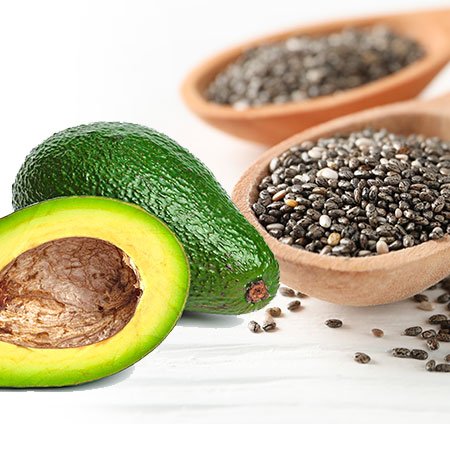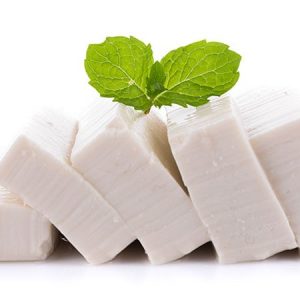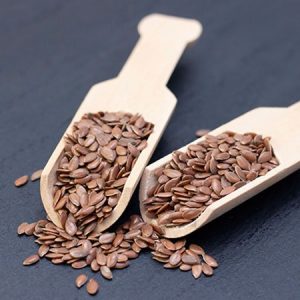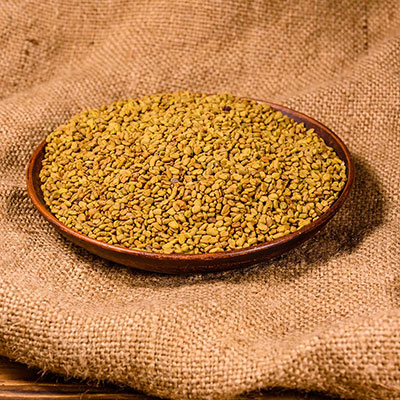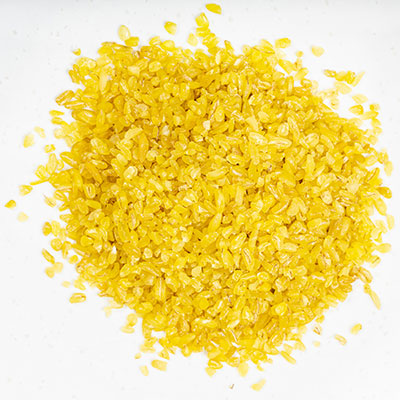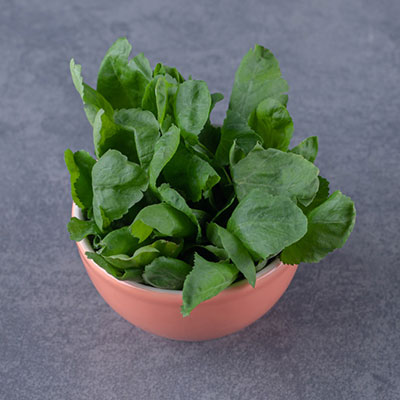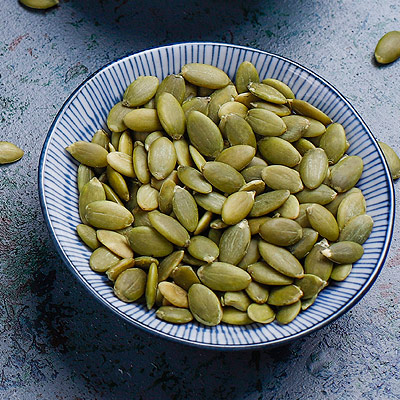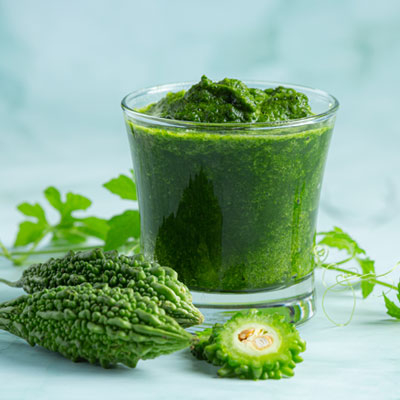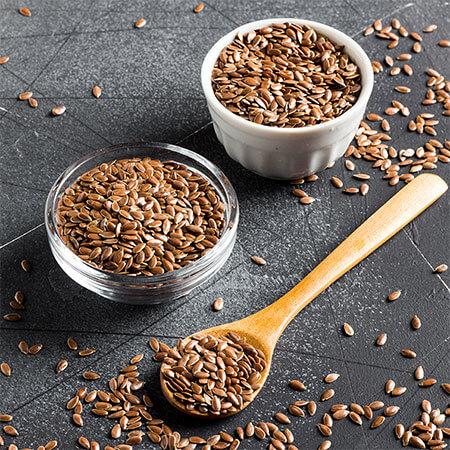High fat foods are not always bad. Your body requires specific amount of fat from the diet to assist in better functioning of memory, hormones, and nutrient absorption. The quality of fat you eat can make them beneficial or harmful for your health. In this article we are going to talk about what healthy fats are and why should you consume them.
Foods that have monounsaturated and polyunsaturated fats are considered to be healthful for your body. These foods comprise of omega-6, and omega-3 fatty acids. In this article, we will learn more about healthy fats, unhealthy fats, their individual impact on the body and the best sources of healthy fats to include in your diet.
What Are Healthy Fats?
According to World Health Organization (WHO), 30% of the total amount energy consumption should come from healthy fats. These fats are classified as unsaturated fats. They have single bond i.e., monounsaturated bonds or multiple bonds i.e., polyunsaturated bonds in their chemical structure. It is strongly advised to include healthy fats in your diet.
These fats benefit the body in numerous ways. It manages cholesterol in the body by increasing high density cholesterol, or good cholesterol and lowering the low-density cholesterol or bad cholesterol in the body.
This action improves heart health and reduce the possibilities of cardiovascular diseases, stroke, and specific types of cancers in the body. Inclusion of healthful fats in your daily meal also gives you a feeling of fullness, reduces the rate of carbohydrates digestion, and adds a distinctive flavor to your food.
Best Food Sources For Healthy Fats
After learning about the healthy fats, and their benefits, we will now look at food sources that have abundance of healthy fats. Include most of these best sources of fatty acids, in your daily diet to enhance your overall health.
1. Avocado
For better performance of your body, you need to supply it with healthy foods on a regular basis. Avocado is one of the healthiest foods that you should consume. 200 grams of Avocado has approx. 320 calories, and 28 grams of fat. This fruit is loaded in monounsaturated fatty acids called “oleic acid”. This acid serves as an “anti-inflammatory” agent and plays a key role in prevention of cancer in the body. Avocado oil is proven to safeguard your body against heart ailments, and diabetes.
Avacado is also rich in fiber. A single fruit provides 13.5 grams of the daily dietary recommendation of 38 grams of fats for males, and 25 grams of fats for females. It also has “lutein”, a substance that boosts vision and is considered to be a rich dietary source of potassium.
2. Chia seeds
Chia seeds are tiny in size. They are loaded with antioxidants, healthy fats, and omega-3 fatty acids. A single ounce of these seeds has 8.71 grams of fat. These high-quality seeds can help in relieving signs of rheumatoid arthritis, and lower triglycerides levels in the blood.
Chia seed flour has the ability to reduce blood pressure in those who have high blood pressure. These seeds also loaded with fiber, antioxidants, iron, calcium, and protein. You can add these seeds in smoothies or sprinkle in your salads. To make it more beneficial, you can soak them in water overnight and eat it next day.
3. Dark chocolate
Eating a single oz of this chocolate can help in kicking away sweet cravings, and providing 9 grams of healthful fat, flavonoid antioxidants, 41 milligrams of magnesium and nutrients like calcium, and potassium. It has been seen that dark chocolate helps in reducing heart risk in a person and enhance brain function also.
4. Eggs
Eggs are one of the best sources of protein. It is an ideal breakfast for people. The white part of the egg is dense in healthy fats, and proteins. This makes it super nutritious. One medium-sized egg has 5.3 g of fat, 6 grams of protein and around 78 calories.
Its yolk has choline, vitamin D, and B vitamins that aids in the proper functioning of the brain, liver, muscles, and nerves. The yolk has several other phytonutrients, that includes lutein that lowers the chances of cardiovascular ailments. Always use it in moderate amounts (at max 4 eggs per day), as excess of its consumption can put you at risk.
5. Fatty fish
Fatty fish has enormous amounts of omega-3 fatty acids, and unsaturated fats that plays a significant role in promoting brain, and heart health. Some of the types of fatty fish that you can eat daily are:
- fresh tuna
- mackerel
- herring
- sardines
- salmon
- trout
1 oz of mackerel has approx. 20 grams of protein, and 15 grams of fat. Avoid fatty fishes that are high in mercury metal as swordfish, shark, tilefish, and King mackerel.
6. Flaxseeds
Flaxseeds are called as a super food because it is loaded with a lot of healthy nutrients. These seeds are a rich source of omega-3 fatty acids that provides healthy concentration of fiber. Per two tablespoon serving of these seeds comprise of around 9 grams of healthy fat, and 5.6 g fiber.
The presence of fiber content increases the feeling of satiety, and fullness in a person. It can help in lowering cholesterol levels. These nutty flavored seeds are rich in lignans, a special form of plant compound that contains antioxidant, and estrogen effects.
According to research, high amounts of dietary lignans reduce risk of heart diseases in people. You can consume roasted form of flaxseeds as a crunch snack, or add it to your flour, smoothie, oatmeal or yogurt.
7. Nuts
Nuts are advised to be included in a daily meal plan due to its has low GI value. Nuts are rich in protein, healthful fats, vitamins, fiber, antioxidants, phytosterols, and minerals, that helps in prevention of cardiovascular ailment and Type 2 diabetes. It has been seen that people who eat nuts on a regular basis are less prone to gain weight or get obese, or overweight in the long term.
A single oz. of almonds has 14 grams of fat, Brazil nuts has 19 grams of fat, and walnut has 18.5 grams of fat. To get the best nutrition from them, it is advised to eat these nuts in unsalted form.
8. Olive Oil
Olive Oil is considered to be the healthiest oil that possess remarkable health boosting properties. With plenty of antioxidants, and healthy fats, daily consumption of this oil in the form of cooking or salad dressing will help in lowering cardiac disease, and inflammation.
9. Olives
Olives are another potent source of healthy fats that lowers inflammation, boosts immunity, safeguard the DNA, lower oxidative stress, and pacify allergies. Some of the best ways to consume olives is in the form of salads, stews, sandwiches, and curries.
10. Homemade Cheese
After yogurt, another nutrient dense and healthy dairy product that you should eat is Cheese. It has good amounts of prebiotics, calcium, vitamins, proteins, peptides, and minerals. Cheese helps in making your bones strong, and lower the chances of hypertension.
You can enjoy it in various forms such as cheese sandwich, cheese paratha, or add it to your pizza, garlic bread, salads and soups. Do not overconsume cheese as it can have negative impact on the body.
11. Yogurt
When it comes to healthy fats, who can forget Yogurt. It is a probiotic food, that contains plenty of healthy bacteria that supports gut health, and helps in healthy functioning of the body. It is a good option for people who wish to incorporate healthy fats into their daily diet. Low-fat yogurt has low amounts of calories, low fat and also low amount of nutrients like the minerals, vitamins, and other benefits.
Regular consumption of yogurt reduces obesity, weight gain, high blood pressure and boosts heart health. High-fat yogurt promotes a healthy weight in the body. It keeps you fuller for a longer time. To make it tastier, you can add blue berries, mango and pineapple slices, strawberries, mint leaves, cardamom powder, and nuts in it. Greek yogurt that does not have added sugar is a very healthy option to include in your diet.
12. Soybean
Soybean is another very healthy sources of protein, and polyunsaturated fats. Soy products, and soybeans helps in the protection of the heart, enhance skin health, and boost the bones. You can consume soybean in the form of curries, salad, sandwiches, and dals.
13. Tofu
Tofu is a beneficial plant protein. 100 grams of it has around four grams of polyunsaturated, and monounsaturated fats, 11 grams of protein and 1/4th of the total recommended dietary intake of calcium.
Frequently asked Questions about Healthy Fats
1. What Are The Benefits Of Healthy Fats?
Monounsaturated fatty acids, and polyunsaturated fatty acids are healthful fats. The two popular Polyunsaturated fatty acids are omega-6, and omega-3 fatty acids. Substance that have good quality fats remains in a liquid state at room temperature, and can become soft or solid when cooled.
As the body doesn’t synthesize these fats naturally, you need to obtain them from foods. Omega-3 fats provides a wide range of health benefits as mentioned below:
- benefit the heart
- lowers LDL cholesterol
- enhances insulin levels
- enhances blood glucose levels
- Fight inflammation and prevents diseases that are caused due to it.
2. What Are Unhealthful Fats?
Trans fats, and Saturated fats are considered as unhealthy fats. These foods are mostly seen in a solid state at room temperature. Saturated fats increase low density cholesterol in the body. To save your body from the harmful impact of saturated fat, you should replace them with Polyunsaturated fatty acids, and Monounsaturated fatty acids.
3. What Are Trans Fats?
Trans fats are a highly dangerous form of fats that are available in plenty in the food products available in stores. As they are devoid of nutrition, there is no need to include them in the diet. These fats pose acute health risks when eaten in large amounts on a regular basis.
Trans fats are basically artificial trans fats, that are labelled on food products as partially hydrogenated oils. They are very unhealthy for your body. Just two percentage of calories obtained from trans fats on a daily basis can elevate the chances of cardiovascular ailments in the body by 23 percent. Trans fat can also cause inflammation in the body, and put you at a risk of following ailments:
- heart disease
- diabetes
- stroke
- obesity
- high blood pressure
- high cholesterol
4. What Foods Contains Trans Fats?
Though Trans fats are mostly found in processed foods, it is also available in dairy products such as cow milk, goat milk or sheep milk. If you are obese, diabetic, or heart patient, it is advised to talk to your doctor before you add milk to your diet. He will guide you with the safe limit of consumption to avoid getting any side effects.
Following foods should be avoided from the diet due to their trans fats in them:
- fried foods
- hydrogenated oils
- frozen foods, like pies, and pizzas
- packaged goods
- processed food available in tins, and cans in the market.
- pre-cooked foods
- margarine
- baked goods
Conclusion
Fat is an essential macro-nutrient that body requires in conjunction with protein, and carbohydrates. A balanced diet should comprise of healthful polyunsaturated, and monounsaturated fats. Always check the nutritional composition, and ingredients of products when buying them. Discard the ones that contains saturated, and trans fats. The more you replace unhealthy fats, by PUF’s fats, and MUF’s, the healthier your body will become.
Hope you liked this article. Please share it with your family, and friends on social media. If you have any queries then do write to us. We would be happy to solve them at the earliest.
